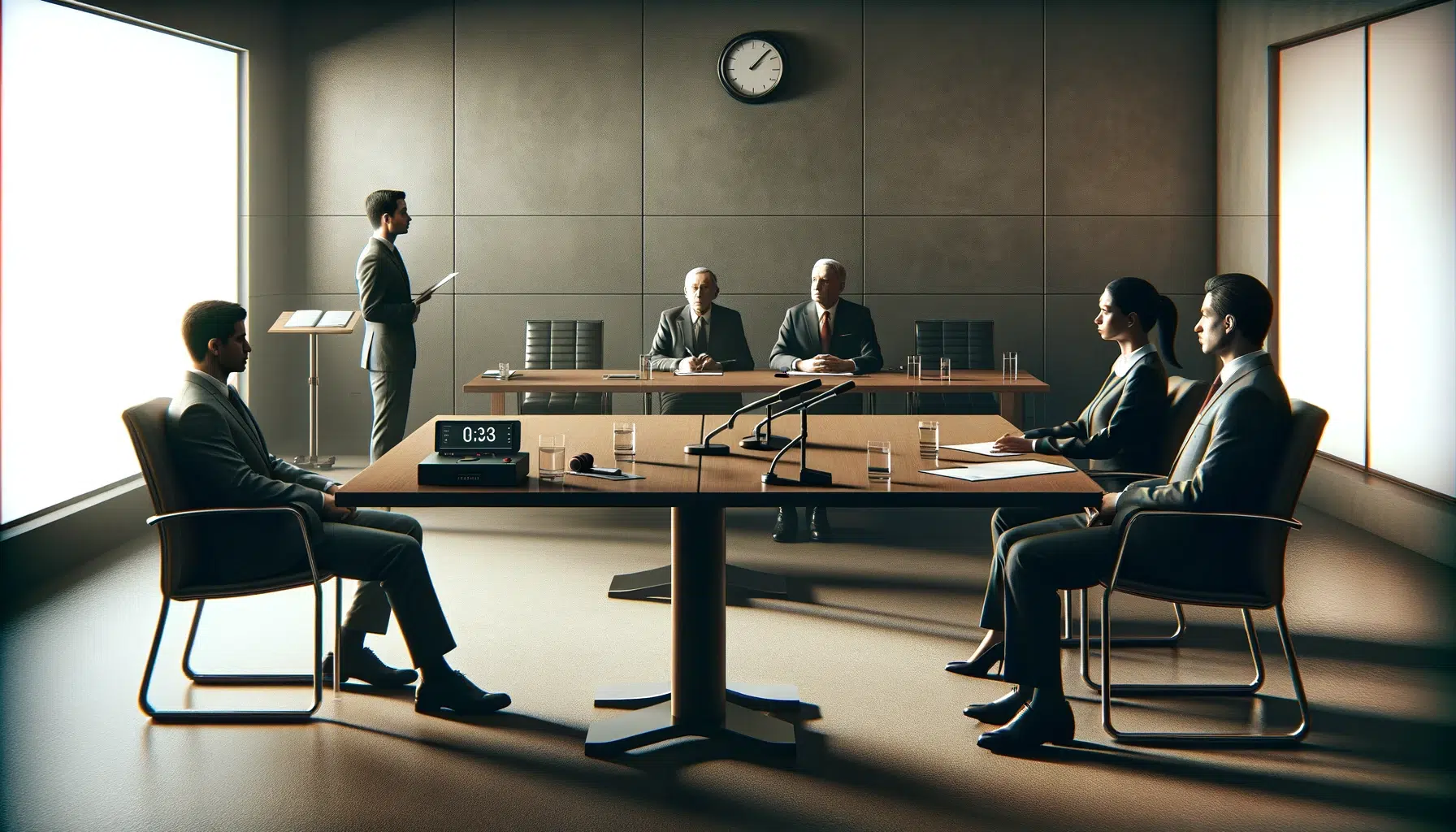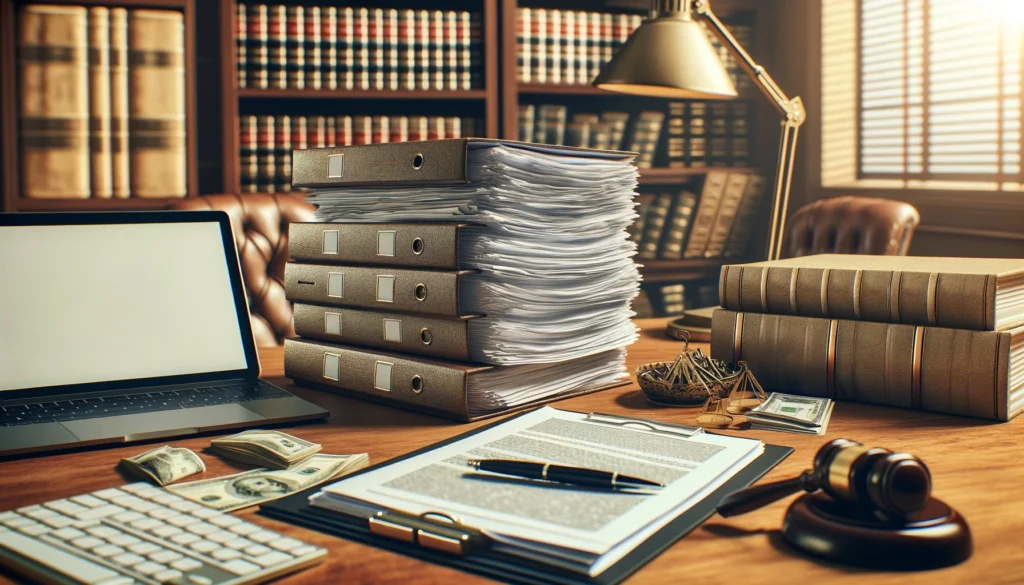
Demand Packages: Your Opening Salvo in Personal Injury Negotiations
In the high-stakes game of personal injury claims, the demand package is your opening gambit. It’s more than just a collection of documents; it’s a carefully crafted narrative that lays the groundwork for your client’s path to fair compensation. A well-prepared demand package showcases the strength of your case, outlines the extent of the injuries suffered, and justifies the amount you’re demanding from the opposing party or their insurance company.
But creating a winning demand package is no easy feat. It requires meticulous organization of medical records and bills, thorough analysis of liability and causation, and the ability to translate complex legal concepts into a persuasive narrative that resonates with the opposing side. It’s a balancing act of showcasing the damages suffered while anticipating and addressing potential defenses.
Fortunately, ChatGPT can be your secret weapon, transforming this daunting task into a streamlined and efficient process. Let’s explore how this AI-powered tool can help you craft demand packages that pack a punch.
ChatGPT: Your Demand Package Drafting Assistant
Imagine having a meticulous legal scholar and a persuasive wordsmith working side-by-side to craft the perfect demand package. That’s the potential ChatGPT brings to the table, serving as your dedicated drafting assistant in the high-stakes world of personal injury negotiations.
ChatGPT’s ability to process vast amounts of information and generate clear, concise text makes it a valuable asset in several key areas of demand package creation:
- Summarizing Medical Records and Bills: No more wading through endless pages of medical jargon. ChatGPT can efficiently distill this information, summarizing injuries, treatments, and associated costs in a clear and concise format.
- Analyzing Liability and Causation: Feed ChatGPT the relevant facts and evidence, and it can help you assess the strength of your liability case, identifying potential arguments and highlighting any weaknesses that need to be addressed.
- Calculating Damages: Don’t let complex damage calculations slow you down. ChatGPT can help you estimate potential economic and non-economic damages based on factors like medical expenses, lost wages, and pain and suffering.
- Identifying Key Legal Arguments and Evidence: Need to bolster your demand with solid legal arguments? ChatGPT can analyze case law and statutes, identifying relevant precedents and providing supporting evidence for your claims.
- Drafting Persuasive Demand Letters: Say goodbye to writer’s block. ChatGPT can help you craft compelling demand letters that clearly articulate your client’s injuries, the impact on their lives, and the legal basis for your settlement demand.
Important Note:While ChatGPT is a valuable tool, it's not a replacement for legal expertise. Always review and revise its output to ensure accuracy, clarity, and legal compliance. Ultimately, the responsibility for the demand package and negotiation strategy rests with the attorney.
Now that you understand ChatGPT’s role in demand package creation, let’s explore how to use specific prompts to unlock its full potential and craft a winning strategy for your personal injury claim.
Also read:
Prompt Engineering for Demand Package Success
Crafting a persuasive demand package requires more than just listing facts and figures. It’s about weaving a compelling narrative that highlights the severity of your client’s injuries, the impact on their life, and the undeniable liability of the opposing party. ChatGPT can be your partner in this storytelling process, but it needs your guidance to paint the full picture.
Here are some prompt strategies and examples to help you unlock ChatGPT’s potential for crafting winning demand packages:
Medical Summary:
- Basic Prompt: “Summarize the plaintiff’s medical treatment.”
- Advanced Prompt: “Summarize the plaintiff’s medical treatment related to the accident [date]. Include a timeline of medical providers, diagnoses, procedures, medications, ongoing treatment plans, and any permanent or long-term impairments. Highlight the severity and impact of the injuries on the plaintiff’s daily life, work, and overall well-being.”
Damages Calculation:
- Basic Prompt: “Calculate the plaintiff’s damages.”
- Advanced Prompt: “Calculate the plaintiff’s total economic and non-economic damages resulting from the accident. Itemize medical expenses, lost wages (past and future), property damage, and any other relevant costs. Estimate the value of pain and suffering, emotional distress, and loss of enjoyment of life, considering factors such as the severity of the injuries, impact on daily activities, and prognosis.”
Liability Analysis:
- Basic Prompt: “Was the defendant liable for the accident?”
- Advanced Prompt: “Analyze the evidence in this case [summarize key evidence, e.g., police report, witness statements, expert opinions]. Determine the strength of our case for proving the defendant’s negligence. Identify the legal elements of negligence that apply [e.g., duty of care, breach of duty, causation, damages]. Cite relevant statutes and case law to support your analysis.”
Demand Letter Drafting:
- Basic Prompt: “Write a demand letter to the insurance company.”
- Advanced Prompt: “Draft a persuasive demand letter to [Insurance Adjuster Name] seeking a settlement of [Amount]. Emphasize the severity of the plaintiff’s injuries, the clear liability of the defendant, and the significant impact of the accident on the plaintiff’s life. Include specific details from medical records, witness statements, and expert opinions to support our claims. Highlight any aggravating factors that warrant a higher settlement, such as the defendant’s reckless behavior or failure to apologize.”
Negotiation Strategy:
- Basic Prompt: “What should I say to the insurance adjuster?”
- Advanced Prompt: “Based on the case facts and anticipated defenses, develop a negotiation strategy for this personal injury claim. Outline our key arguments, potential points of compromise, and a range of acceptable settlement amounts. Suggest tactics for addressing common insurance adjuster pushback regarding liability or damages.”
Additional Tips:
- Experiment with Different Prompts: Don’t be afraid to try variations of the same prompt to see which one yields the most useful output.
- Provide Ample Context: The more information you give ChatGPT about the case, the better equipped it will be to generate relevant and accurate responses.
- Review and Refine: Always review ChatGPT’s output carefully and make any necessary edits or adjustments to ensure accuracy, clarity, and persuasiveness.
Crafting a strong demand package is just the first step. Let’s explore how ChatGPT can continue to support you throughout the negotiation and settlement process.
Also read:
Beyond the Basics: ChatGPT for Negotiation and Settlement
Crafting a persuasive demand package is just the first step in the negotiation process. Once the demand is submitted, the real dance begins – a back-and-forth of offers, counteroffers, and legal arguments that ultimately determines the outcome of your client’s case. ChatGPT can continue to be a valuable partner during this crucial phase.
Here’s how:
- Analyzing Offers and Counteroffers: Unsure whether to accept a settlement offer? Input the details into ChatGPT and ask it to analyze the offer’s strengths and weaknesses based on your case facts, the estimated value of your claim, and relevant legal precedents. It can help you identify potential areas for improvement and suggest counteroffer strategies.
- Crafting Persuasive Responses: Need to respond to a lowball offer or challenge the opposing party’s arguments? ChatGPT can help you draft compelling responses that highlight the strengths of your case, address the opposing party’s concerns, and nudge the negotiation in your favor.
- Exploring Creative Solutions: Sometimes, the most effective settlements involve thinking outside the box. ChatGPT can help you brainstorm creative solutions, such as structured settlements or non-monetary remedies, that could benefit both parties and lead to a faster resolution.
The Human Element: While ChatGPT can offer valuable insights and support, it’s important to remember that successful negotiation ultimately depends on human skills like communication, persuasion, and empathy. Use ChatGPT to enhance your own negotiation prowess, not to replace it.
Remember:The goal of negotiation is not simply to win, but to achieve a fair and just outcome for your client. ChatGPT can be a powerful tool in this pursuit, helping you navigate complex legal and financial issues while maintaining a focus on your client's needs and interests.
As with any AI tool, there are ethical considerations to be mindful of when using ChatGPT in the context of settlement negotiations. Let’s wrap up by discussing these important considerations…
Also read:
Ethical Considerations and the Importance of Professional Judgment
While the allure of AI in settlement negotiations is undeniable, the ethical implications cannot be ignored. ChatGPT can be a powerful tool, but it should never be a substitute for the nuanced judgment and experience of a trained attorney.
Transparency is Paramount: Be transparent with your client about the role of AI in your negotiation strategy. Explain how ChatGPT is assisting your preparation, but clearly state that it’s not making decisions on their behalf. Open communication fosters trust and ensures your client remains informed and empowered throughout the process.
Confidentiality is Key: Personal injury cases often involve sensitive medical and financial information. When using ChatGPT, ensure you are not compromising client confidentiality. Anonymize data or use hypothetical scenarios when seeking input from the AI.
The Human Element of Negotiation: While ChatGPT can generate arguments and counterarguments, the true art of negotiation lies in human interaction. Empathy, understanding, and the ability to read nonverbal cues are essential for successful negotiation. ChatGPT should be used to enhance your skills, not replace them.
The Bottom Line: Embrace ChatGPT as a valuable resource, but remember that you are the ultimate decision-maker. Your legal expertise, ethical compass, and professional judgment remain irreplaceable in ensuring fair and just outcomes for your clients.


